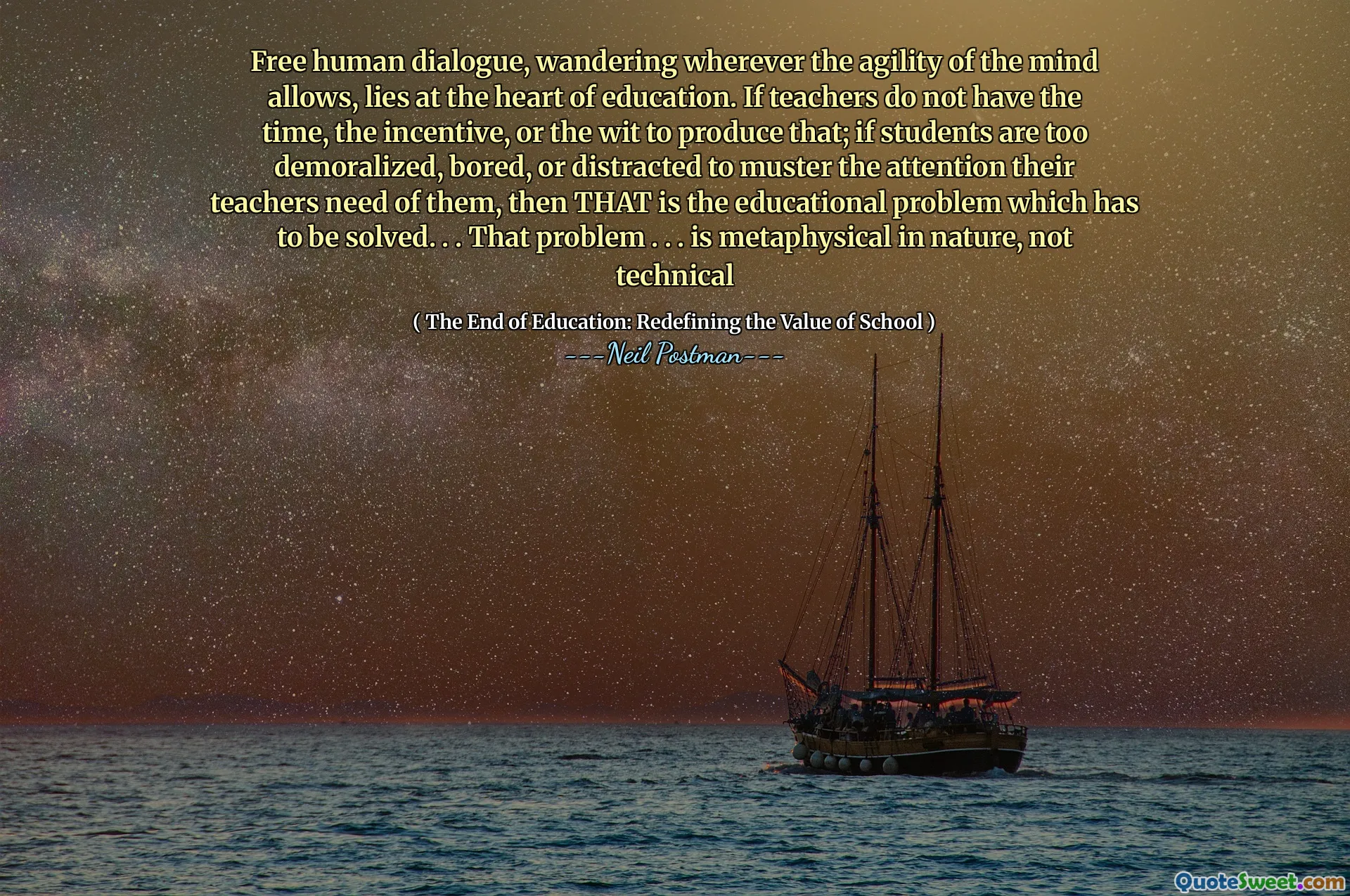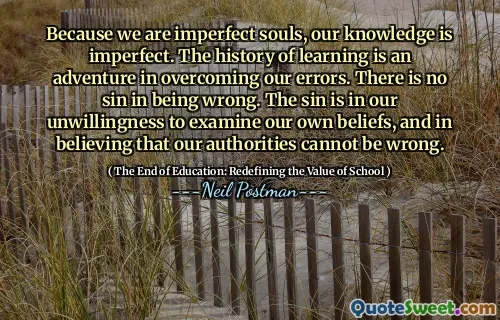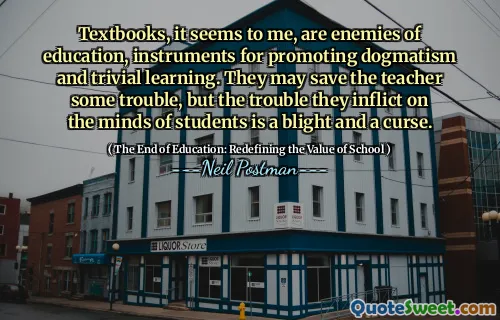
Free human dialogue, wandering wherever the agility of the mind allows, lies at the heart of education. If teachers do not have the time, the incentive, or the wit to produce that; if students are too demoralized, bored, or distracted to muster the attention their teachers need of them, then THAT is the educational problem which has to be solved. . . That problem . . . is metaphysical in nature, not technical
Neil Postman, in "The End of Education: Redefining the Value of School," emphasizes that genuine learning thrives on free and dynamic conversations that spark the mind's agility. He argues that if educators lack the necessary time, motivation, or creativity to foster such dialogue, and if students are overwhelmed by distractions or disinterest, then we face a significant educational challenge. This issue, according to Postman, transcends technical adjustments and delves into deeper philosophical concerns.
The essence of education is compromised when both teachers and students are not engaged in meaningful discourse. Postman suggests that the focus should shift from mere technical improvements to addressing these underlying metaphysical issues. To cultivate a richer educational experience, both educators and learners must be inspired and willing to participate actively in the learning process.


